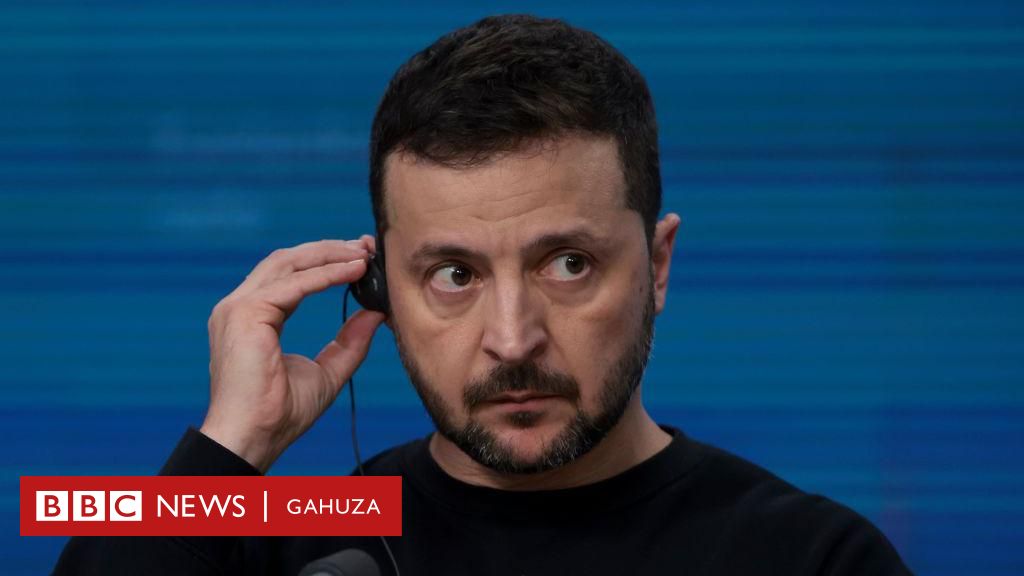 |
|
The ongoing conflict between Russia and Ukraine has captured global attention, with various international actors playing significant roles in shaping the trajectory of the war. A recent statement by Ukrainian President Volodymyr Zelenskyy has ignited debate concerning the potential influence of a Donald Trump presidency on the conflict's resolution. Zelenskyy's assertion that a Trump administration could lead to a swift conclusion of the war is a bold claim, prompting analysis of Trump's past statements and actions regarding the conflict, as well as the broader geopolitical implications of such a scenario.
Trump's consistent public pronouncements regarding the war in Ukraine highlight his stated priorities: ending the conflict and curtailing what he perceives as excessive US financial commitment to Ukraine's military defense. His proposed approach differs markedly from the current Biden administration’s strategy. This difference extends beyond mere rhetoric; the practical implications of a potential Trump return to power would have profound consequences for the flow of military aid, the nature of diplomatic engagement with Russia, and the overall geopolitical landscape. Understanding Trump's potential approach requires analyzing his past statements, his proposed policies, and the potential reactions from both Ukraine and Russia.
The significant financial investment from the United States in supporting Ukraine’s military efforts cannot be overstated. The figures cited, totaling billions of dollars in military aid, underscore the substantial commitment from the US. This massive injection of resources is a critical factor in the balance of power, influencing the war's duration and the potential outcomes. A change in US leadership with differing priorities regarding aid could significantly alter this dynamic. A reduction in military support, as suggested by Trump's past statements, could significantly weaken Ukraine's position in the ongoing conflict and potentially open up possibilities for further Russian territorial gains. The impact would cascade across the economic, political, and social landscapes of Ukraine.
Beyond the immediate effects on military aid, a potential Trump presidency would likely reshape the broader diplomatic landscape surrounding the conflict. His past interactions with Russian President Vladimir Putin have raised concerns about his foreign policy approach, leading to speculation about a potential shift in the US's stance on negotiations and sanctions against Russia. A less confrontational approach, as might be expected from Trump, could potentially result in concessions from Ukraine that are unfavorable to its long-term security interests. The potential for renewed or increased Russian aggression, driven by a perceived weakening of US commitment, is a significant concern requiring careful consideration. This analysis must extend beyond simple predictions of 'peace' or 'war', to consider the complex web of potential outcomes and their corresponding consequences.
The opinions expressed by other world leaders, such as German Chancellor Olaf Scholz, suggest a broader international consensus on the potential consequences of a Trump presidency. The German perspective, indicating a perceived divergence in approach from the prevailing international consensus, highlights the complex interplay of national interests and geopolitical considerations. European nations, deeply invested in the stability of the region, are likely to closely monitor any shift in US foreign policy under a Trump administration. This international scrutiny will undoubtedly influence the broader strategic calculus of the conflict. The potential for a decreased level of international cooperation, resulting from a shift in US policy, could further destabilize the region and prolong the conflict.
In conclusion, Zelenskyy’s statement concerning Trump's potential influence on the Ukraine war necessitates a careful consideration of multiple facets. Trump's stated goals, the massive US financial contribution to Ukraine's defense, the potential for altered diplomatic engagement with Russia, and the reactions from international actors all contribute to a complex and unpredictable scenario. While a swift end to the conflict might be a desired outcome, a deeper analysis reveals a multitude of potential consequences, both positive and negative, that extend far beyond the immediate battlefield. The future of the conflict remains intricately linked to not only the actions of the belligerents but also the broader geopolitical environment and the choices of key world leaders.
Source: Intambara Russia-Ukraine: Zelensky avuga ko intambara 'izorangira vuba' ku butegetsi bwa Trump
